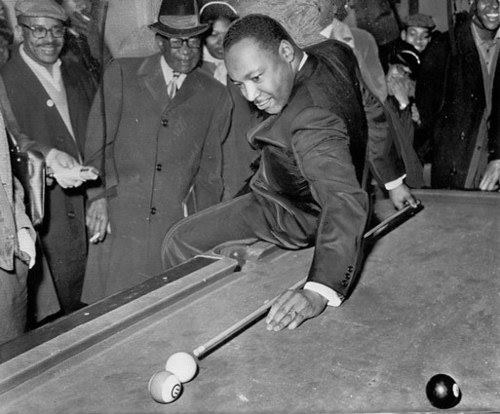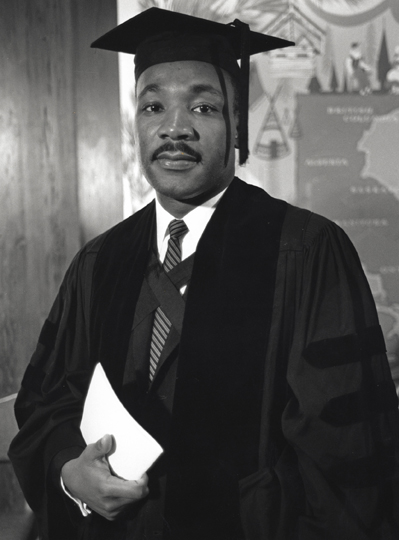
On Facebook, today, scrolling through my friends’ posts, I spotted U of M professor Joe Soss’s post featuring an eye-catching photo of the Rev. Dr. Martin Luther King, Jr. hot-dogging it at a pool hall, accompanied by the following quote:
“We must recognize that we can’t solve our problem now until there is a radical redistribution of economic and political power… this means a revolution of values and other things. We must see now that the evils of racism, economic exploitation and militarism are all tied together… you can’t really get rid of one without getting rid of the others… the whole structure of American life must be changed” (MLK, report to SCLC staff, May 1967).
And I loved Soss’s gloss on the photo: “I bet,” Soss wrote, “he sunk that pool shot too.
The day and the photo got me thinking. I had just done a television interview about how Minnesota was recently ranked as the least racially integrated state in the nation by a financial services website. After making the usual comments about being cautious about state-by-state comparisons, particularly about gaps and changes over time, I talked to the reporter about how Minnesotans’ general sense of themselves as relatively successful in terms of racial harmony and our sometimes self-satisfied liberalism can get in the way of our fully recognizing and then really addressing, in policy and social action, racial inequality problems in our state, especially those pertaining to African Americans.
Not all of my comments made it into the piece (see actual story here), and afterwards I found myself thinking back to that most famous of sociology majors, Dr. King (see below for a great photo Soc Images spotted on the HBCU website, dated 1948) and his Letter from a Birmingham Jail. In it, he writes that he believes white moderates are among the greatest obstacles to his vision of change. One passage reads:
…I must confess that over the past few years I have been gravely disappointed with the white moderate. I have almost reached the regrettable conclusion that the Negro’s great stumbling block in his stride toward freedom is not the White Citizen’s Counciler or the Ku Klux Klanner, but the white moderate, who is more devoted to “order” than to justice; who prefers a negative peace which is the absence of tension to a positive peace which is the presence of justice; who constantly says: “I agree with you in the goal you seek, but I cannot agree with your methods of direct action”; who paternalistically believes he can set the timetable for another man’s freedom; who lives by a mythical concept of time and who constantly advises the Negro to wait for a “more convenient season.” Shallow understanding from people of good will is more frustrating than absolute misunderstanding from people of ill will. Lukewarm acceptance is much more bewildering than outright rejection.
I had hoped that the white moderate would understand that law and order exist for the purpose of establishing justice and that when they fail in this purpose they become the dangerously structured dams that block the flow of social progress. I had hoped that the white moderate would understand that the present tension in the South is a necessary phase of the transition from an obnoxious negative peace, in which the Negro passively accepted his unjust plight, to a substantive and positive peace, in which all men will respect the dignity and worth of human personality.
Many years later, many protests and rallies and elections later, America remains torn between high-minded colorblind ideals and persistent racial inequalities, while white Americans have the easy option and privilege of just living with the status quo. Maybe if I had quoted Dr. King directly, I could have made that point even stronger.


Comments